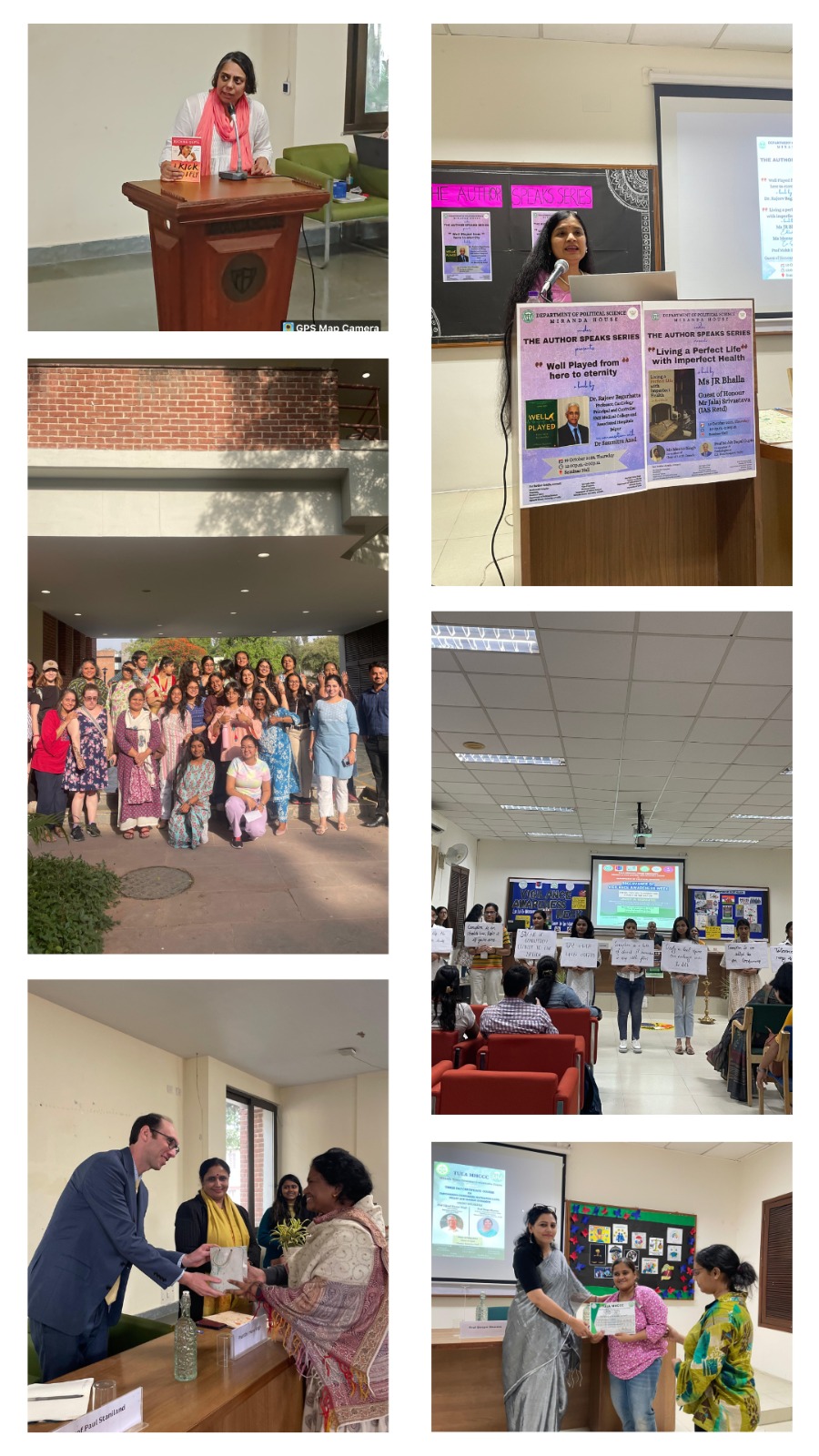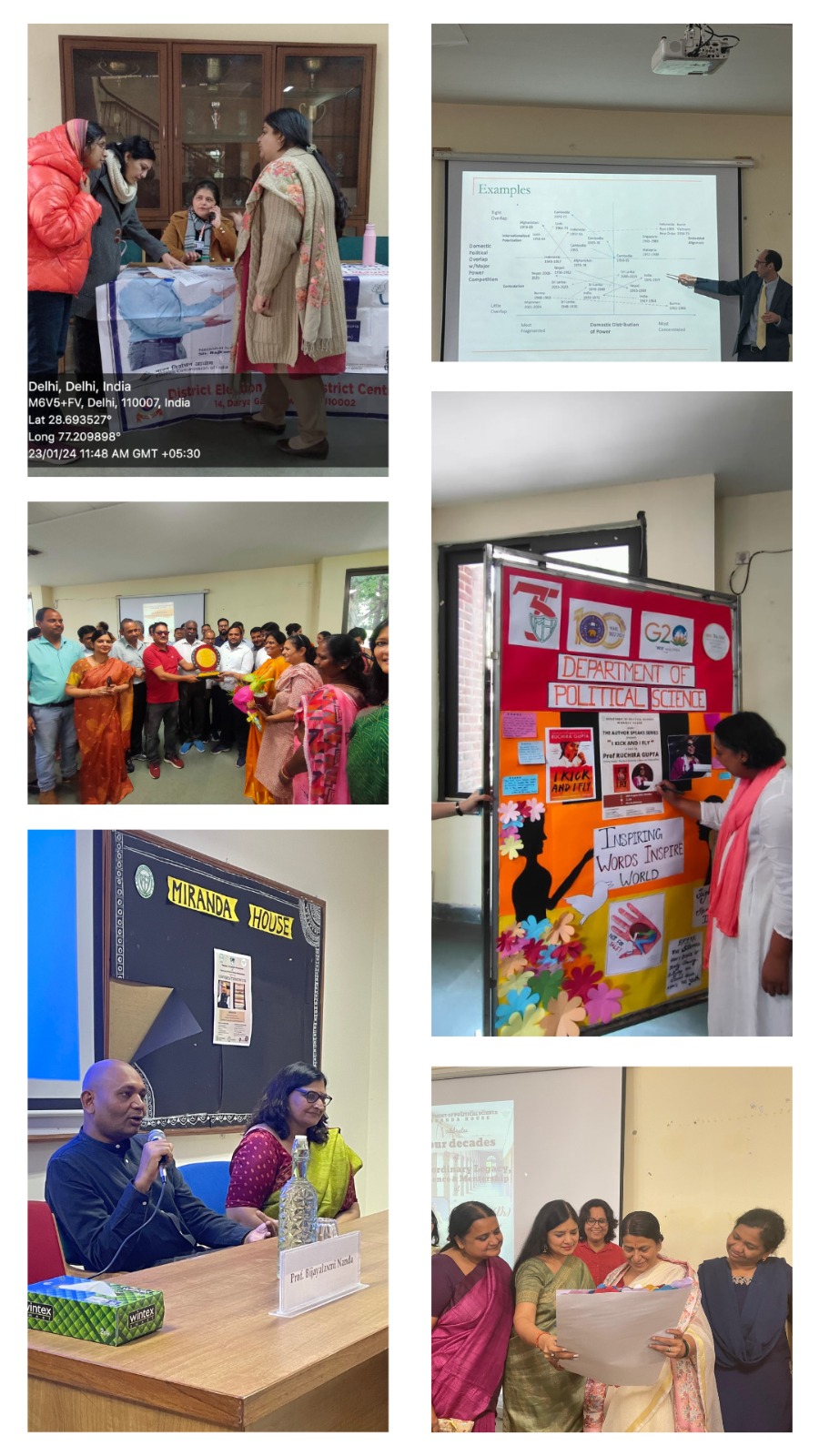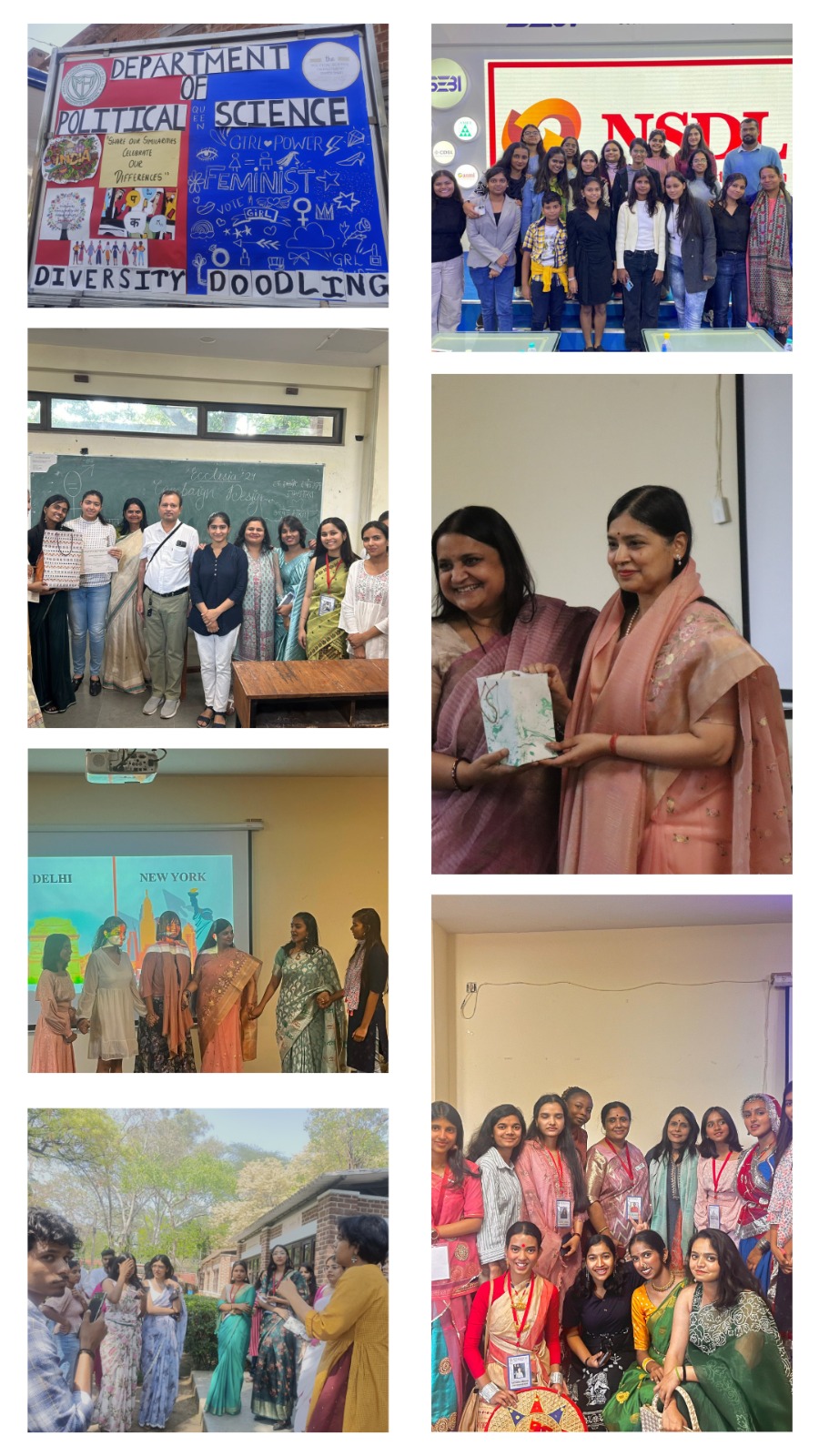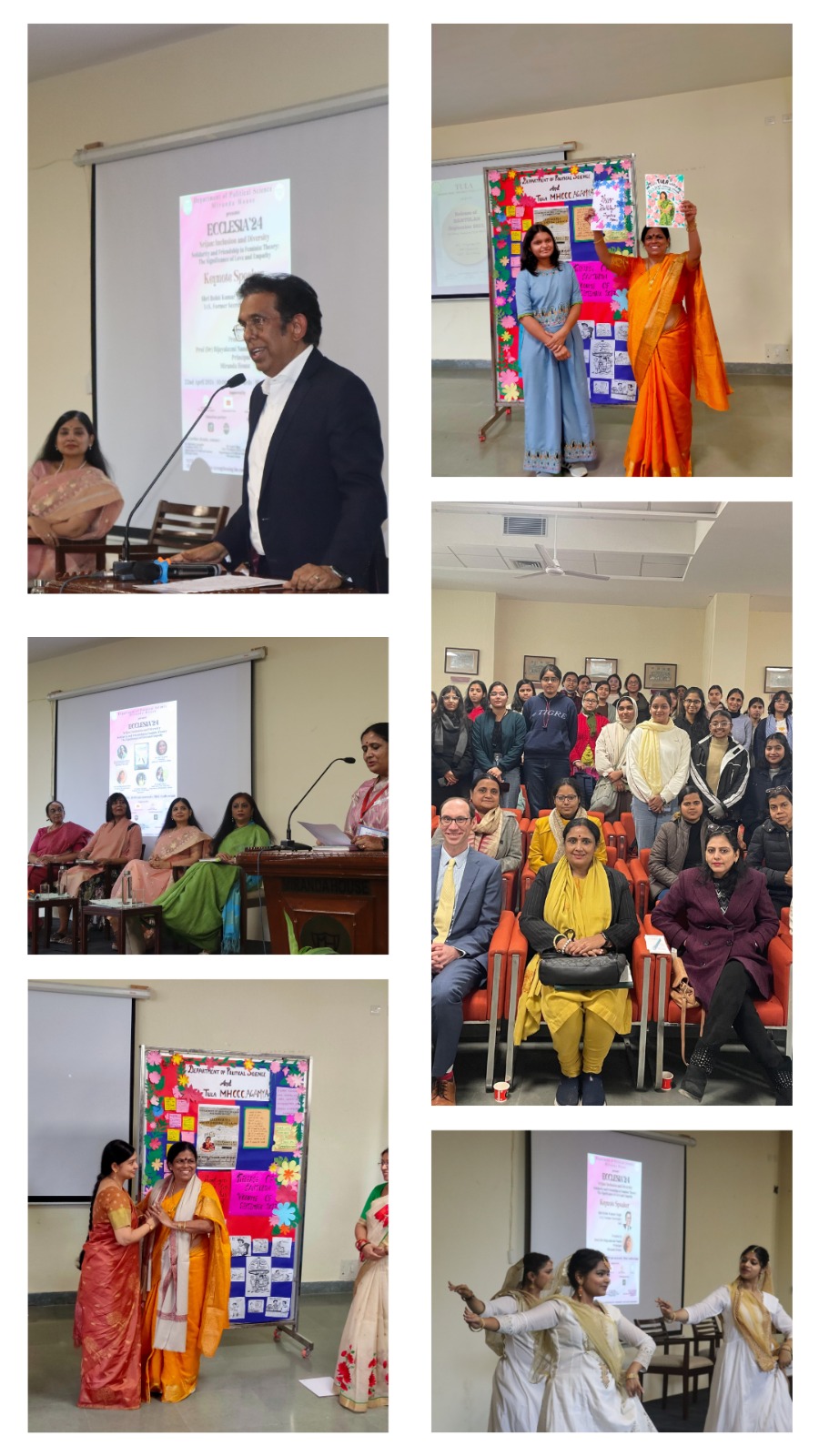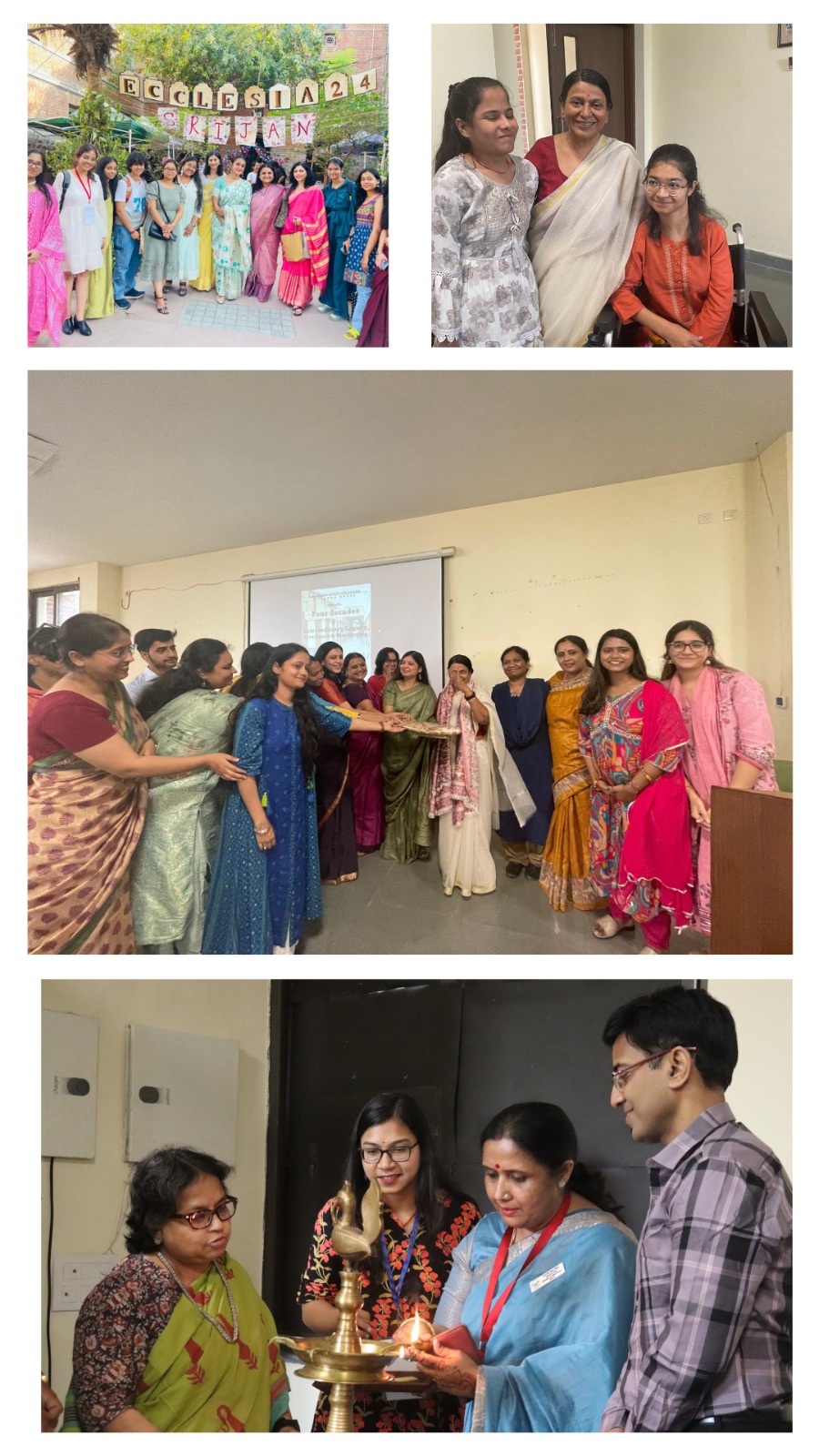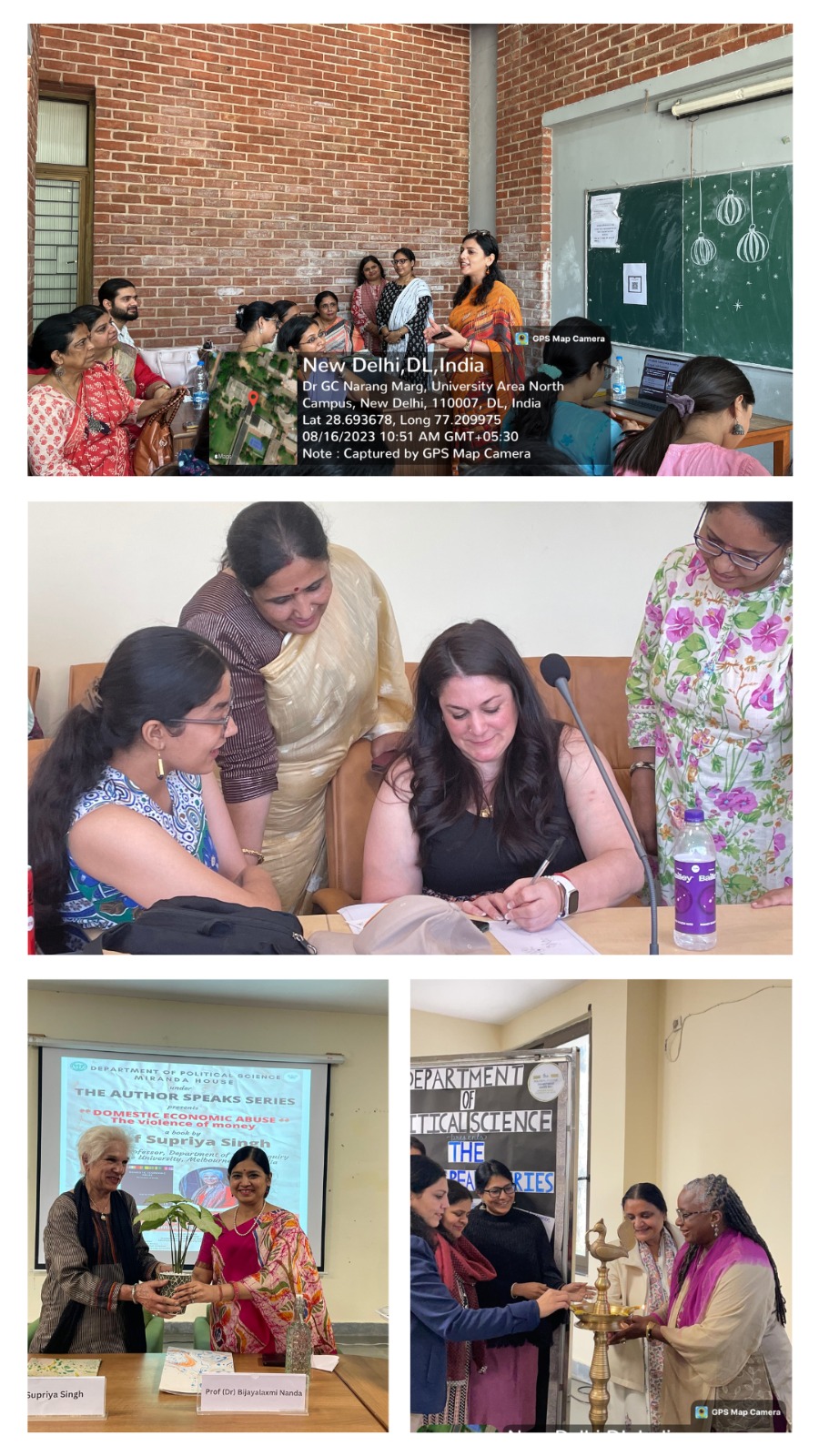Department Society
One of the premier Women's Institutions of Delhi University
Department of Political Science
Introduction
Department of Political Science offers an undergraduate three years Honours course and Generic Electives to other Honours courses as well as courses at the integrated B.A. Programme level. It was established in 1972. The department has a diverse faculty whose specialization spreads across various fields of Political Science and caters to the largest number of students across disciplines. The core emphasis of the department is on familiarizing students with the conceptual and applied essence of the discipline. The course offers a set of skills that are excellent preparation for public policymaking, policy analysis, legal fields, international relations, diplomacy, political consultancy, public affairs, academics and research. The department has established several collaborations with both national and international organizations in order to provide hands-on experience to students. The department prepares students for a wide range of careers, who join the government, non-government organizations and private sectors. A large number of students opt for higher studies in prestigious institutions in India and abroad.
The discipline of Political Science requires students to understand politics in all its nuances, to probe power relationships which exist in human interaction and examine the fundamental principles of democratic functioning that guide ideas and institutions. Members of faculty use innovative teaching methods to make learning experiential. This involves the use of debates, discussions, movie screenings, quizzes and drama. Series of public lectures and workshops designed around the course are also used by teachers to provide extensive knowledge to the students. Project presentations on contemporary political themes involving original thinking and relevant research are an integral part of learning. Value addition to the courses is also done through workshops, invited talks, seminars and conferences. Street plays are used as a method to discuss important political issues. Field visits and study trips aid the teaching-learning process. The department was actively engaged in the teaching-learning process using technologies like Zoom, Google Classroom etc during the Pandemic. Faculties and students showed enthusiasm and worked together. Apart from conducting regular online classes, the department successfully organised webinars with enthusiastic participants engaging in a range of topics. The Department is also home to the Policy centre and Gender Lab through which Department provide students across discipline a research platform for budding researchers. The organisations associated with the Department include the National Legal Services Authority, DLSA, Ministry of Consumer Affairs, Niti Aayog, CFAR, WFS, FES, RGICS and others.
The department recognises the need for making project work as an academic requirement for all courses. Students undertake projects on all papers under the supervision of the concerned faculty. This practice of the department has been lauded over the past three decades. These projects are undertaken in various formats including group work as well as individual presentations. These entail field work, case studies, literature review, data collection and presentation with emphasis on interpretations. Through involvement with the prestigious Delhi University Innovation projects, students build their research and writing skills in close interaction and guidance by faculty members. The department is home to 'Tula', the consumer awareness club of the college. It trains and orients students to be responsible consumers through interactive talks and annual workshops. Knowledge of the Constitutional provisions and laws are also provided to the students through workshops in association with organizations such as Delhi Legal Services Authority. Academic essay writing and rapporteurs are encouraged in a sustained manner. The department produces two annual magazines, viz. the Vox Populi and the Santulan. It also encourages its students to be involved with both government and non-government organisations through internship programmes and exposure visits. The organisations associated with the department include the National Legal Services Authority, DLSA, Ministry of Consumer Affairs, Niti Aayog, CFAR, WFS, FES, RGICS and others. The students of the department are also guided by the department to be associated with the larger vibrant co-curricular and extracurricular life of the college by participating in its Women's Development Cell, NSS, Enactus and Debating Society as well as being on the editorial board of the college magazine.





 Unique Essay Competition
Unique Essay Competition